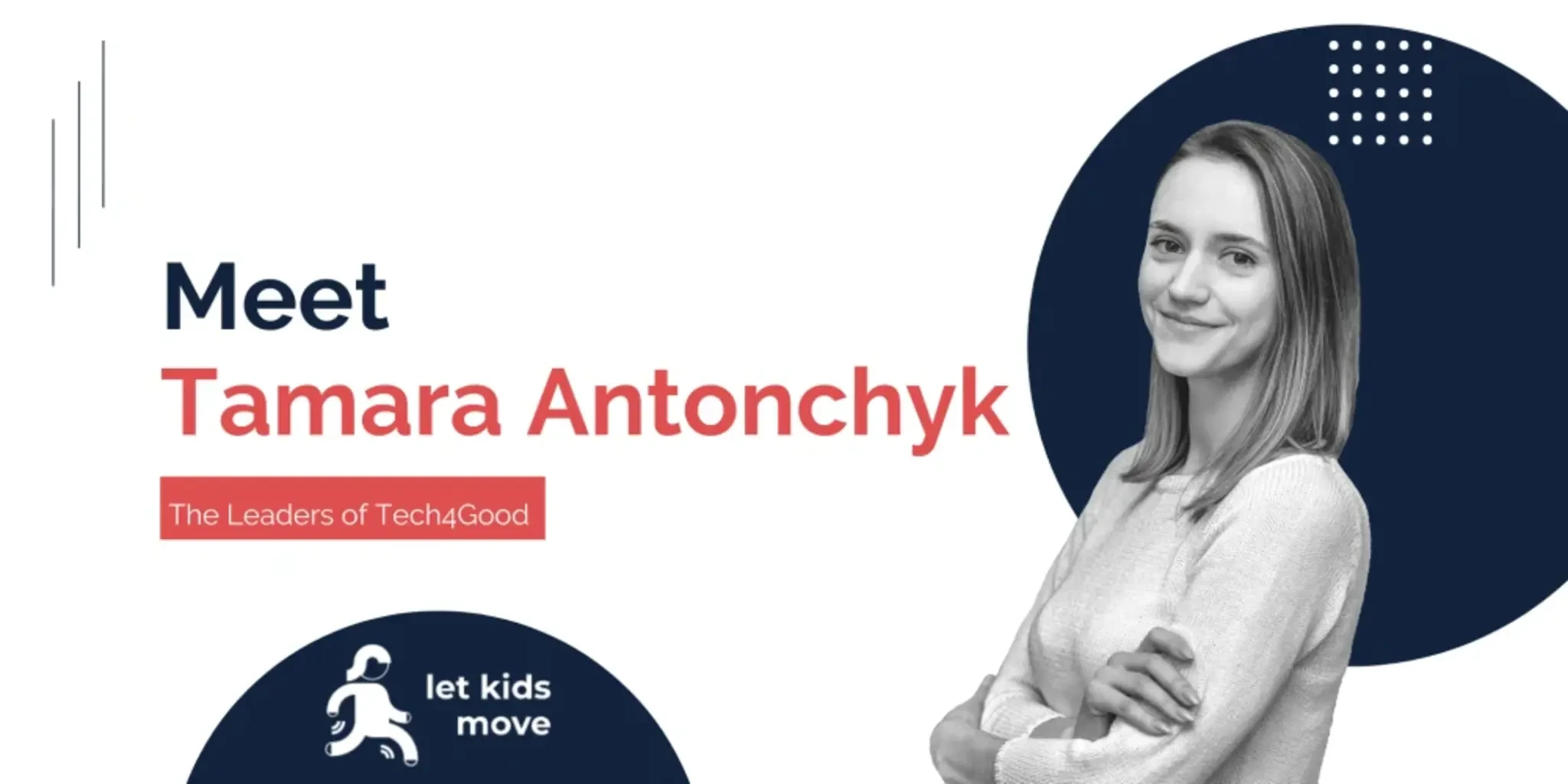Together with Tamara Antonchyk, we look at Tech4Good opportunities and obstacles through the prism of a Ukrainian social responsibility start-up
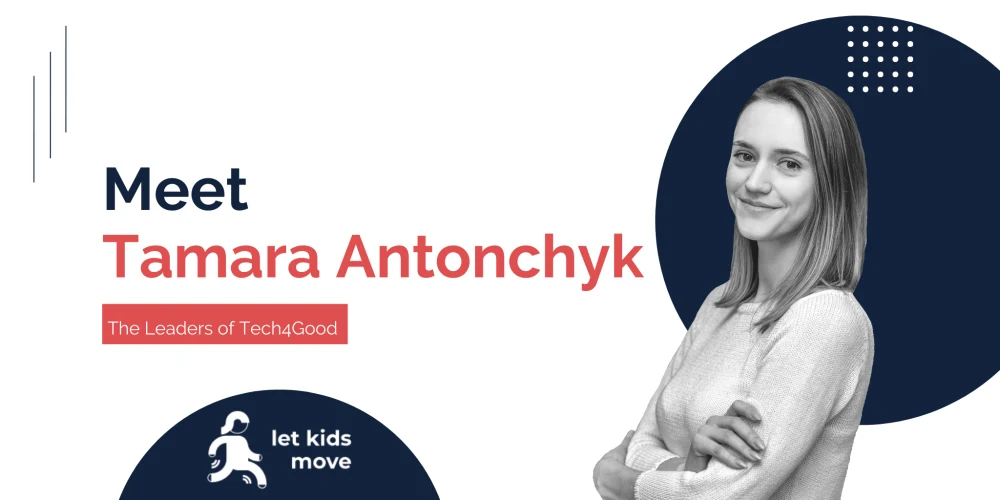
This article is the second one in our series “The Leaders of Tech4Good”. And today, we would like you to meet the team of Let Kids Move project represented by Tamara Antonchyk, the project coordinator.
Who Is Tamara Antonchyk?
Tamara Antonchyk is a project coordinator and manager at Let Kids Move. She manages a team of 10 people, communicates with sponsors, experts, lawmakers, and the public. Although the initiative was not her idea initially, now she became a genuine patron of Let Kids Move. Today, we will be talking with her because she is the only person who knows simply everything about the past, present, and future of this project.
What Is Let Kids Move?
Let Kids Move is a social responsibility initiative, a pet project of Keenethics. The idea of it is to improve the physical health, mental well-being, and academic performance of school students by letting them change postures dynamically instead of sitting at their desks all the time. The team engages in developing a universal desk, educating the public on the dangers of a sedentary lifestyle, and working with the Ministries to update the Ukrainian legislature accordingly. It is one of the first and few social responsibility projects in its field in Ukraine.
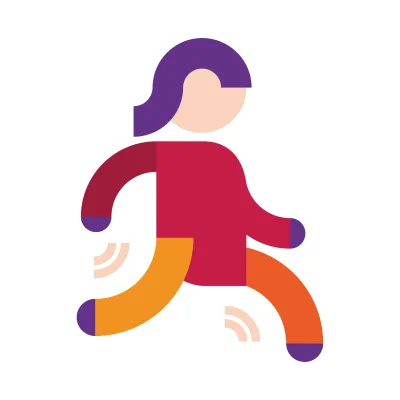
How has the project idea appeared? Are there any similar initiatives abroad?
The idea of the project appeared a few years ago when Max Savonin, the CEO of Keenethics, came across an article about the harm brought by the sedentary lifestyle. He told us about his findings. As we grew interested in this problem, we realized why our backs would hurt or why we would grow tired so fast. The more we studied this question, the better we understood that sedentary lifestyle and its harmful impact stemmed from school. This is how we got the desire to change something, which later turned into the “Let Kids Move” initiative.
There are plenty of similar projects, which emphasize the necessity to switch from sitting to standing when studying or working. There are a lot of experimental classrooms and schools around the world that make use of standing desks partially or entirely. Also, there are a lot of methodologies that explain how to work at a standing desk can be organized. The most common methodology in CIS countries is V.F. Bazarny method of dynamic postures.
The main idea behind our initiative lies in dynamic postures. It lets a child stand up after sitting for some time or sit down after standing for some time – to be healthy, energetic, and comfortable. We have been studying and continue studying the global experience in the field of dynamic education. You can learn more about our developments and findings in the book “Talita Kum” (for now available only in Ukrainian) or in the “9 Questions About the Project” section.
What are your achievements locally and globally? Do you receive any feedback? How do you plan to develop or extend your project further?
It is not a time yet to talk about achievements. Our goal is not to help one particular school. Our goal is to change the entire approach towards the learning process and classroom ergonomics. But first of all, we aim to make parents and teachers understand the impact of their decisions on the health and future of their children.
We have an active dialog with the public via our social media, share our knowledge and findings, explain the importance of this issue, and report on the progress of our project. Our Facebook group involves over 10 thousand people. Also, we try sending our messages via mass media and different online resources.
As for our plans, they are indeed grandiose. This year, we plan to launch a pilot project in one or two schools. After that, we will be able to analyze the impact of dynamic postures on children. These findings we will present to the Ministry of Health and the Ministry of Education and Science of Ukraine in order to implement such a methodology in every Ukrainian school.
Along with educational and research activities, we are busy developing a universal desk, which could be adjusted to the height of a particular student. It is important for a child to be able to adjust the desk to be able to sit or stand regardless of what lesson it is. The desk should take all needs of a child into account, including a space for a backpack and other personal belongings.
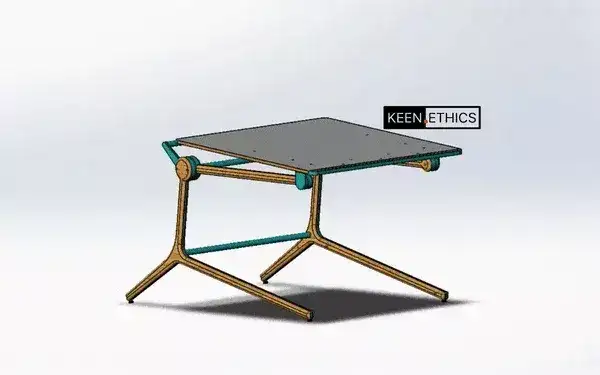
Do you involve parents or teachers? Whom is it easier to work with?
As of now, we have not involved the public yet. Once we start the pilot, we will actively involve teachers and parents. Even now, we would gladly accept their help and support. Each repost in the social media, each comment and like is important for us and for our project. This is how we feel heard, understood, and supported. Yet, the main work with stakeholders is ahead of us.
Did you face resistance from parents, teachers, or students against your idea?
There is no idea which would be 100% supported. We have the same story. There are people who think that this issue is not a priority and people who question the outcome because it takes not months but years to measure. There are people who just do not care. Sometimes, we face resistance from those who are to be engaged in the implementation of this initiative. For instance, it is difficult to engage politicians as they measure each project with how it will benefit their election opportunities. Moreover, this project will require additional expenses, hours, and efforts. We understand that this is a usual process, and we are ready to break barriers, to plant this useful idea into heads and hearts.

There is no idea which would be 100% supported.
How do you look for donors? Which sources of financing are the most effective? How can our readers donate to your project?
This question is a pain point. As of now, we have only one source of financing – Keenethics. Even though the social responsibility project of Keenethics grew into a separate business entity, Keenethics is still the first and foremost sponsor. To support us, you can donate on our website. We are actively applying for various grants, tried to engage in local investment programs, but we had no luck yet. So, if among our readers, there are people who share our desire to make a change, we will gladly accept their help. To express your support, check our website or contact me directly via my LinkedIn.
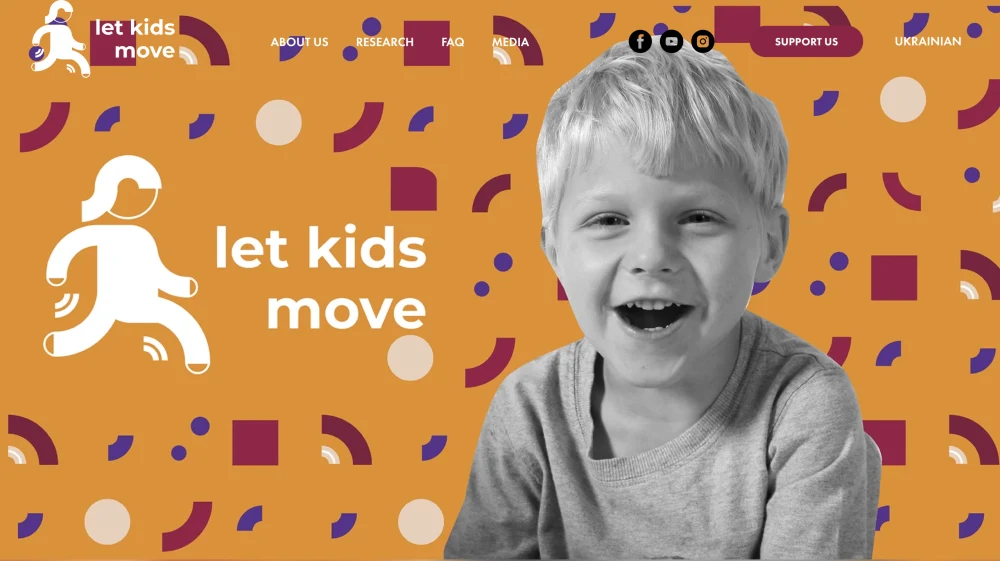
What would you recommend other companies that plan on launching a social responsibility project? What mistakes should they avoid? What opportunities should they catch?
The first and most important recommendation is – “Do it!”. You should not postpone it till tomorrow, till later, till Monday, or till New Year. It is easier to join an existing initiative. Yet, it is better to monitor existing projects, analyze successful, failing, and failed ones. Then, you make a decision whether to join forces with someone or to launch your own initiative.
The second piece of advice is – “Be ready to face walls”. There will be lots of walls, throughout your entire way. It will be difficult to find sponsors, experts, time, money, supporters, and many more. But when you take down walls, you feel genuine satisfaction of being one step closer to your aim and of being stronger than any barriers.
What ethical values do you believe are the most important in today’s world?
The most important is respect. Respect to life and health of each person. Health should be prioritized over everything else, and everyone should have an equal right to be safe and healthy.
Do you think that the Ukrainian society is ready for the Tech4Good movement?
I don’t know if we are ready, but such a movement is definitely necessary. Each of us has a need to be useful. We have a need to help others, to support others, and to take care of others. Many people do not have this need satisfied because most of us mistakenly believe that to take is better than to give. Moreover, since Soviet times, Ukrainian people have preserved a habit of self-victimization, self-pity. Today, our society has a “wonderful” motto, literally translated as “My house is on the edge of this town, I know nothing”. In other words, “it is no business of mine”. It is a vicious circle, which, however, is very easy to break. Do a good thing. Once you do something good, you will not be able to stop.

Do a good thing. Once you do something good, you will not be able to stop.
To Wrap Up
Being a non-commercial social responsibility start-up in Ukraine is hard. It is hard anywhere. And yet, “it is difficult” does not mean “you should not try”. “It is difficult” means “you are about to do something great”. The example of Let Kids Move is about to prove it, and Safe & The City has already proved. If you have not seen it yet, check out our recent interview with Jillian Kowalchuk – a TedX speaker, UN Women partner, and a founder of Sate & The City.
Our professionals would gladly join you in your endeavor. Learn more about us to understand if we can become a match.

